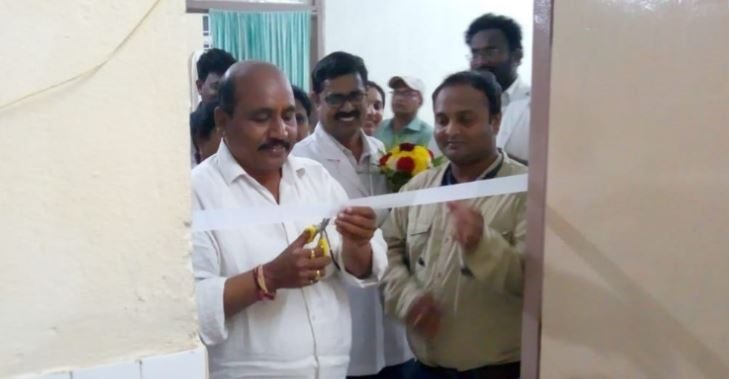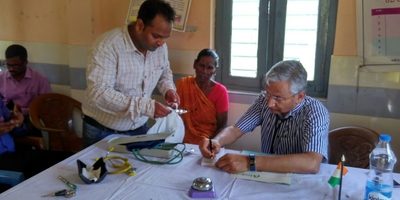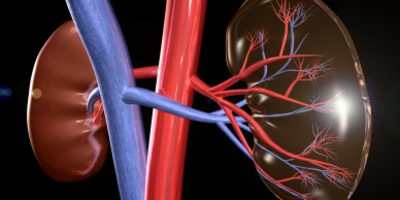
The George Institute to provide technical assistance to Kidney Research Innovation Patient Assistance Centre set up by Andhra Pradesh Government at Palasa
With a view to providing better treatment and service to persons living with chronic kidney disease, the Andhra Pradesh Government with technical support from the George Institute for Global Health, India has established a Kidney Research Innovation and Patient Assistance Centre (KRIPA) at Palasa, Srikakulam District.
The centre would study the factors that contribute to the development and progression of kidney disease in the community, and set up a community-based surveillance and management program in the public sector to support to people living with chronic kidney disease in the region. The centre will also support the dialysis facilities in the area and enable effective monitoring of the health of persons living with CKDu. It will also provide guidance on home-based care for dialysis patients and support the clinical management of such persons through the primary and composite health centres and also through the mobile medical units.
“We are excited by the opportunity to work in the midst of people at Palasa. It will help us gain better understanding about factors that influence the development and progression of kidney disease. This is a laudable initiative of the government of AP and we are delighted by the opportunity to support it,” said Prof Vivekanand Jha, Executive Director, George Institute for Global Health India.
The Andhra Pradesh Government had earlier set up a research centre at the Visakhapatnam Institute for Medical Sciences (VIMS) to co-ordinate the activities at Palasa but effective monitoring of dialysis patients and their day-to-day clinical supervision was becoming difficult due to the distance between Palasa and Vizag.
“Now that we have the centre in Palasa, we will be able to effectively monitor the health of such persons living with CKDu and on dialysis,” Prof Jha added.
The KRIPA centre will effectively coordinate with the other Innovation and Incubation centres in the State of Andhra Pradesh, the AP Med Tech Zone and the Directorate of the Health and Family Welfare for cost-effective and timely roll out of envisaged solutions. Long-term plans include the development of comprehensive community-based screening and management program, setting up and maintaining a State level registry of dialysis patients.
With the centre based in Palasa, providing knowledge for early intervention in population for avoiding kidney diseases and other NCDs would become easier.
“As our research progresses and we are able to get a better idea of the root cause of the disease, we will be able to provide better knowledge and also initiate preventive measures on a periodic basis,” Prof Jha pointed out.
Other activities that the centre would undertake include studying the health needs of the community and suggest models of effective community care.






